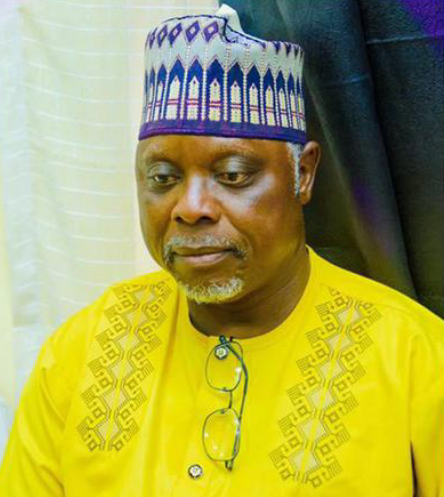
“I’ll Never Let Anyone Make Me Feel I’m Not Enough” — Dele Odule’s Viral Instagram Outburst Sparks Heartbreak Rumours

Veteran Nollywood actor Dele Odule set social media ablaze this week after sharing a string of emotional and cryptic posts on his Instagram page that left fans and critics debating whether the Yoruba film legend was airing personal pain or pursuing a calculated bit of publicity. In a series of short but stinging messages, Odule wrote about betrayal, silence as a response to cruelty, and a firm refusal to allow anyone to diminish his sense of self — lines that were quickly screenshotted, reshared and dissected across X, Facebook and entertainment platforms.
The posts — which included the damning line, “After you’ve said the meanest things, you now come back to tell me you never meant it… I will never allow anyone to make me feel I’m not enough” — struck a chord with followers who read them as raw testimony of heartbreak or the fallout of a bruising personal conflict. Odule paired the captions with images that suggested sleeplessness and emotional strain, prompting fans to share condolences and speculate publicly about who might have hurt the actor.
Within hours of appearing on his account, screenshots of the posts flooded entertainment pages and message boards. Established news outlets and celebrity blogs picked up the story, running headlines that ranged from sympathetic to sensational as they tried to parse motive from phrasing. Some commentators asked whether the posts were creative PR for a forthcoming project; others urged caution and respect, noting that even public figures deserve private space to process pain without becoming spectacle.
Reaction on X (formerly Twitter) was swift and unrestrained. Fans alternately rallied around Odule and tried to guess the cause of the messages, while a handful of critics questioned the decision of a high-profile star to go public with such personal sentiments. A sampling of responses highlighted the split: some users sent prayers and memories of the actor’s long career in Yoruba cinema, while others wondered whether the posts were an appeal for attention in a crowded celebrity marketplace.
Observers pointed to the specific wording Odule chose — “The wrong one will find you in peace and leave you in pieces, the right one will find you in pieces and lead you to peace” — as the kind of universal heartbreak phrasing that spreads quickly because it can be applied to many different scenarios: romantic betrayal, friendship breakdowns, or even professional slights. That particular line, shared widely across Instagram stories and reposted by several entertainment accounts, became the hinge on which many online reactions turned.
For a star whose career spans decades and who has recently been in the headlines for a variety of reasons, the emotional posts add a new, intimate chapter to the public’s understanding of him. Odule has in the past been candid in interviews about personal challenges, including family sorrow and professional frustrations, which makes the public’s quick move to interpret his latest messages as genuine expressions of hurt unsurprising. At the same time, social media-savvy audiences are accustomed to seeing celebrities blend personal confession with promotional strategy, so skepticism also proliferated.
The way Odule framed his silence — “I’m MEAN but I’ll crush your ego with silence” — resonated with many followers who said they have adopted similar strategies when hurt. Mental health advocates who monitor public discussions around celebrity vulnerability cautioned against reducing the actor’s posts to mere gossip fodder. They urged readers to consider the psychological cost of unfiltered speculation and to remember that public posts can represent attempts at boundary-setting rather than invitations to pry.
Entertainment journalists who covered the story emphasized context: Odule’s account of being made to feel “special one day” and “unwanted the next” fits familiar narratives of relationships that evolve unevenly, whether romantic, platonic, or professional. Many Nigerians, including high-profile entertainers, have used social media in recent years to call out injustice, to grieve, and to set boundaries — and Odule’s posts fit neatly into that broader cultural pattern of using public platforms to process private pain.
Not everyone was satisfied with speculation alone. Several media outlets that republished the posts attempted to reach Odule’s representatives for clarification; at the time of publication, no formal statement expanding on the posts’ cause had been made public. That silence, some said, only fueled conjecture and the inevitable stream of memes, reaction videos and opinion posts that accompany any celebrity moment that trends online.
As the conversation settled into the evening, two clear threads emerged: one, a genuine swell of support from fans and fellow actors who expressed empathy and wished Odule peace; and two, a reminder from some quarters that public figures are allowed private pain and that speculation can sometimes deepen it. Whether Odule intended the posts to signal the end of a relationship, a rebuke to a former friend, or a broader reflection on self-worth and resilience, they succeeded in reopening public dialogue about vulnerability, dignity and how we treat one another — both online and offline.
For now, the actor’s Instagram remains the primary source for the messages that sparked the conversation, and the posts continue to circulate as screenshots and quotes across the internet. Supporters and critics alike are watching closely for any follow-up from Odule himself or his team that might confirm the context behind the words, but in the absence of that, the language he chose — defiant, wounded, and resolute — is doing the heavy lifting, reminding millions that even those who seem strongest can feel unmoored, and that insisting you are “enough” is sometimes as much an act of survival as it is of pride.
As the story develops, the conversation around Dele Odule’s posts will likely reflect larger tensions in celebrity culture: what to expect from public confession, how to balance empathy with curiosity, and where the line should be drawn between reporting and respect. For now, a veteran of Nigeria’s film industry has once again captured the public’s attention — not with a movie role, but with a short, sharp piece of writing that has prompted a nation to talk about pain, pride and the quiet power of choosing silence.


